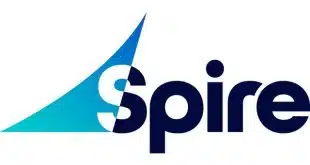MasterCard Inc.’s new interchange schedule is out, and it contains no changes in consumer debit card rates or the transaction volume thresholds that many rates require. Normally, no change means no news, but in the highly charged world of interchange, anything the payment card networks do or don’t do is noteworthy.
“That’s a deliberate move to not attract more attention to debit until there is resolution brought to it,” assesses Aite Group LLC merchant-acquiring researcher Adil Moussa.
MasterCard and Visa Inc. typically update their interchange schedules in April and October, with major changes usually coming in the spring releases. Visa hasn’t yet publicly released its 2011 schedule. Both networks now post current U.S. interchange schedules on their merchant Web sites.
The Federal Reserve Board was supposed to have issued its final rules this month to implement debit interchange regulations mandated by the so-called Durbin Amendment in 2010’s Dodd-Frank financial-reform law, but the Fed delayed the effort because of the huge volume of comments it received after it released preliminary regulations four months ago. The draft rules called for 12-cent transaction caps that would cut large debit card issuers’ interchange revenues by 70% or more (Digital Transactions News, Dec. 16, 2010). Efforts are under way in Congress to delay the rules for up to two years.
While raising rates would assuredly provoke a massive reaction by merchants and their political allies in favor of interchange regulation, even a decrease at this point would be risky for the networks, Moussa notes. “By decreasing them, they would basically argue against themselves that those rates were high,” he says. “It’s smart right now to not make any changes.”
A MasterCard spokesperson says debit rates are unchanged but otherwise declined comment. A spokesperson for U.S. Sen. Richard Durbin, the Illinois Democrat leading the pro-regulation movement, also declined to comment.
The networks set interchange rates, but merchant acquirers pay the resulting transaction fees to card issuers, with acquirers typically passing the full cost on to their merchants. The Durbin Amendment regulates the interchange of only the 131 debit card issuers with $10 billion or more in assets, but smaller banks and credit unions have expressed fears that the market could force down their interchange income, despite their exemption from regulation. Visa, however, this winter said it would issue a two-tier schedule, one reflecting regulated rates once the Fed issues final rules and the other similar to its current debit schedule (Digital Transactions News, Jan. 7). MasterCard at the time said it would wait for the Fed before deciding on a two-tier plan, but by publishing its new, status-quo schedule, it is essentially taking the same path as Visa.
MasterCard also left most of its consumer credit card rates unchanged, though it did raise a few rates for its World premium card by 4 basis points (0.04 percentage points). But both Visa and MasterCard are setting some “super premium” interchange rates on certain inter-regional transactions on premium cards, according to notices on various merchant-acquirer Web sites.
n
Noting that MasterCard's latest schedule is 144 pages, J. Craig Shearman, vice president of government and public relations at the National Retail Federation, says interchange schedules have become much more complicated over the years as transaction categories and card types have proliferated. “Card companies claim to be transparent by putting out these lists of rates, but without data to show how many of each type of transaction takes place or how many of what kind of card [is] issued, it's virtually impossible to make an apples-to-apples comparison from year to year,” he tells Digital Transactions News by e-mail. Shearman claims that merchants are paying “three times” more in aggregate interchange than they did a decade ago.
n
n




